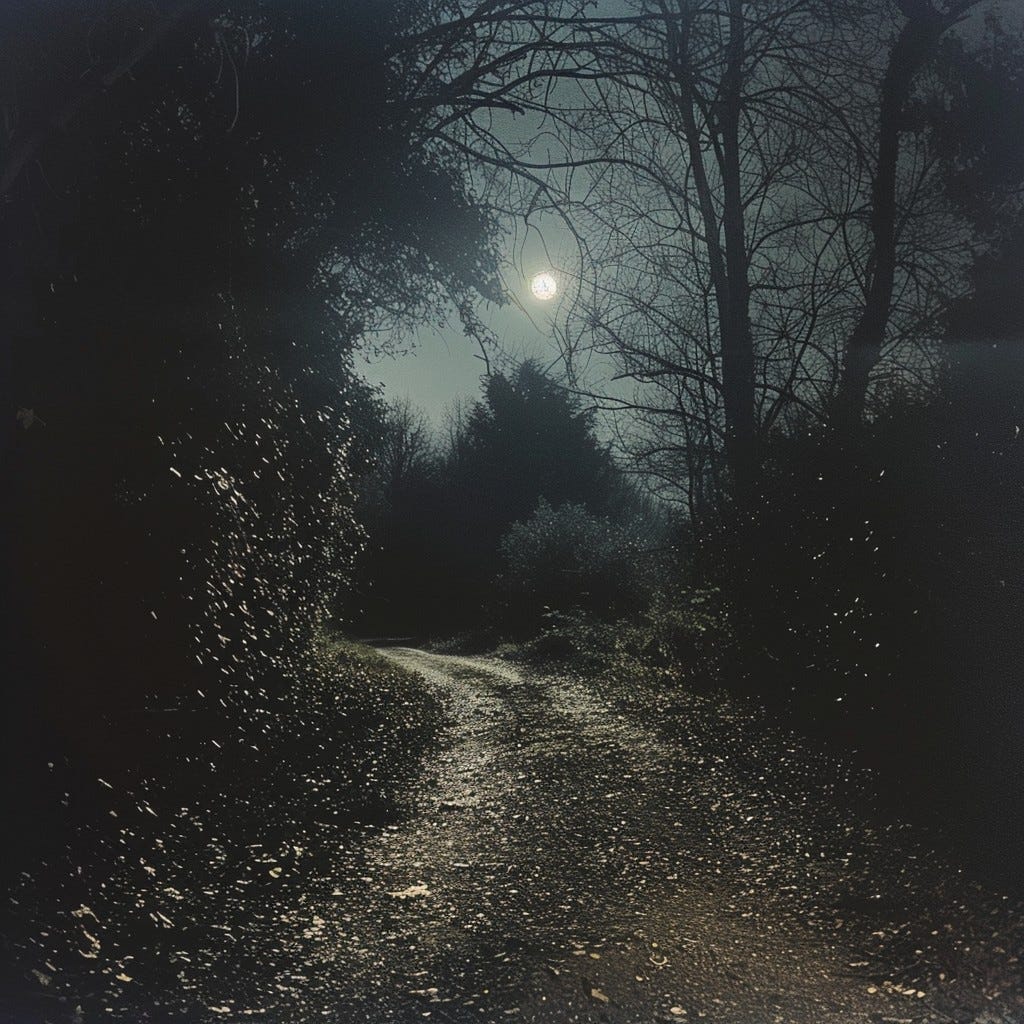Ready to embrace the magic of night trail running? Here's your concise training plan for the Snow Moon Stampede Edition on February 14, 2025.
Choose your challenge:
8-hour endurance (10:30pm-6:30am)
Last Person Standing format (7pm-7am)
WEEKLY PROGRESSION
Week 1: Foundation (20-25 miles)
Build your night vision confidence with runs that start at or after 10pm.
Two night runs: 30-45 minutes each (starting at 10pm)
Weekend long run: 2 hours
Focus: Training your body for late-night starts

Week 2: Building Blocks (25-30 miles)
Time to extend those night hours, simulating the challenge of running past midnight.
Night runs increase to 60-90 minutes (10pm starts)
Weekend long run: 3 hours
Focus: Managing energy through the midnight hours
Week 3: Gaining Momentum (30-35 miles)
Now we're adding intensity and practicing race-specific elements.
Night runs: 75-120 minutes (10pm starts)
Weekend long run: 3.5 hours
Focus: Refining your midnight-to-dawn strategy
Week 4: Peak Training (35-40 miles)
Your highest volume week, simulating race conditions.
Night runs up to 2.5 hours (10pm starts)
One run extending past 2am
Weekend long run: 4 hours
Focus: Full race simulation including pre-race rest
Week 5: Pre-Taper (25-30 miles)
Maintaining fitness while starting to freshen up.
Night runs: 1-2 hours (10pm starts)
Weekend long run: 2.5 hours
Focus: Perfecting your pre-race sleep strategy
Week 6: Taper to Race Day (15-20 miles)
Sharp and ready for race night.
Short quality sessions
Adjust sleep schedule for 10pm start
Focus: Mental preparation and rest
NIGHT RUNNING ESSENTIALS
Pre-Race Rest:
Plan your February 14th daytime sleep
Practice sleeping during the day
Develop a pre-race evening routine
Loop Strategy:
Find your sustainable night pace
Identify technical sections
Plan aid station routines
Perfect your lighting strategy
Recovery Focus:
Adjust daily schedule for night training
Practice post-night-run sleep
maintain good nutrition
Listen to your body
FINAL TIPS
Train with your race gear
Practice in various weather conditions
Run with others when possible
Know the course markings
Questions about your training? Drop them in the comments below!
See you under the Snow Moon!














Share this post